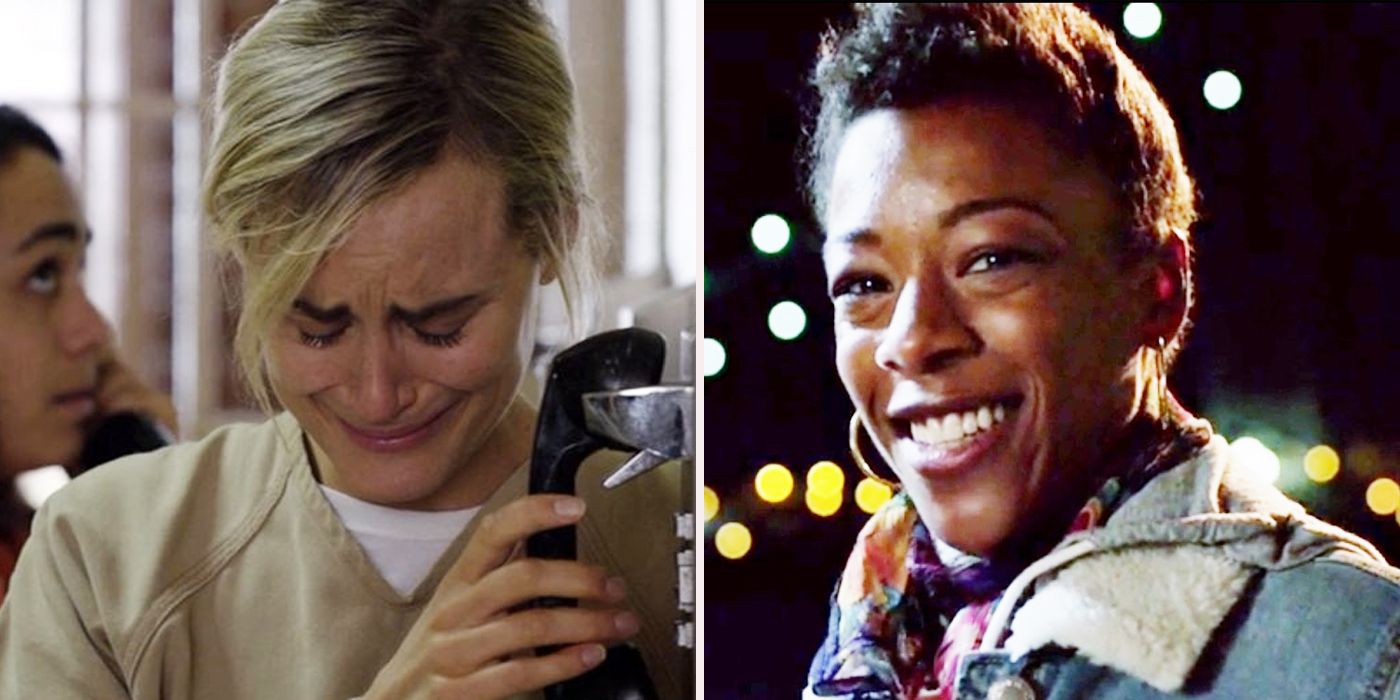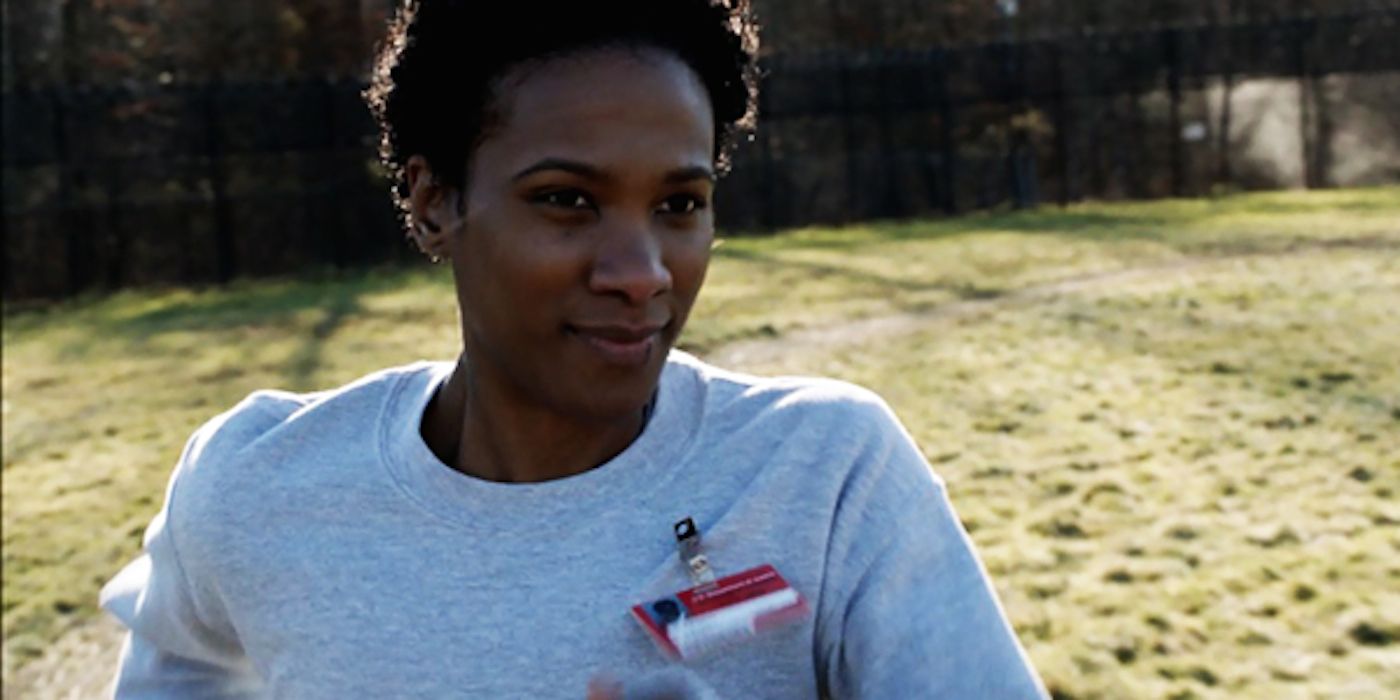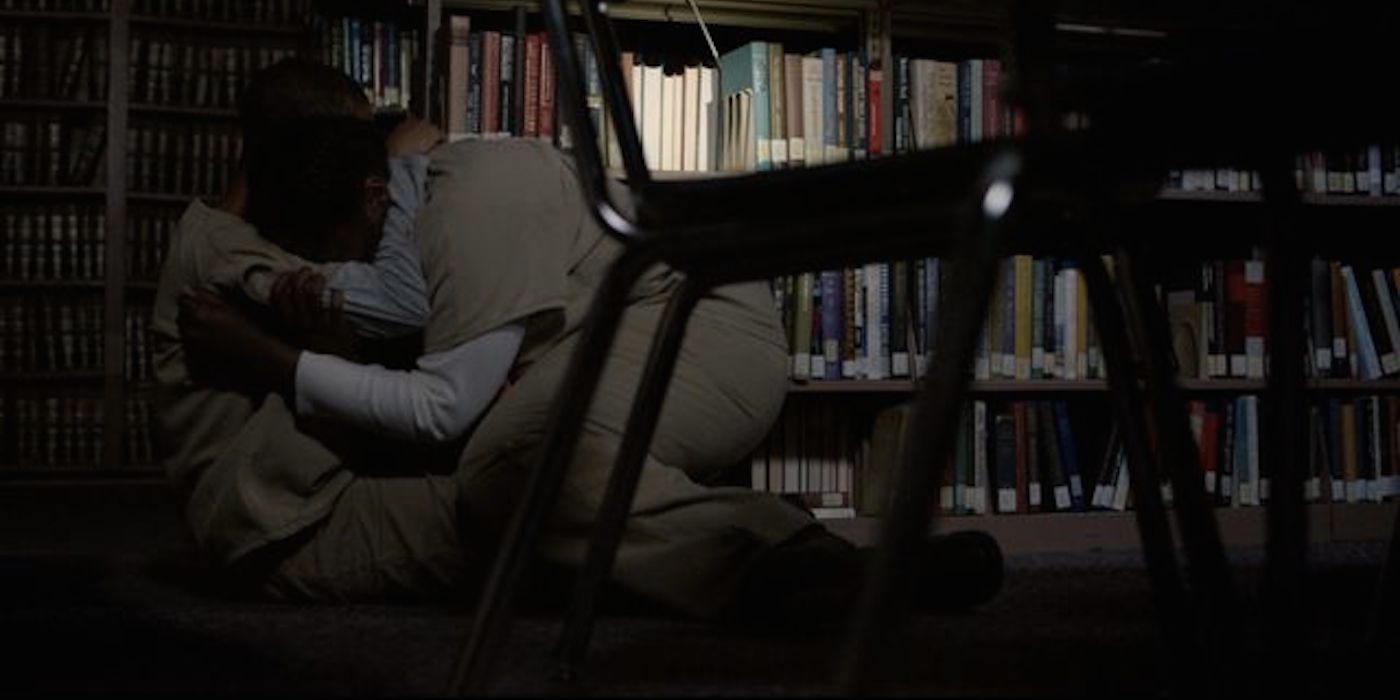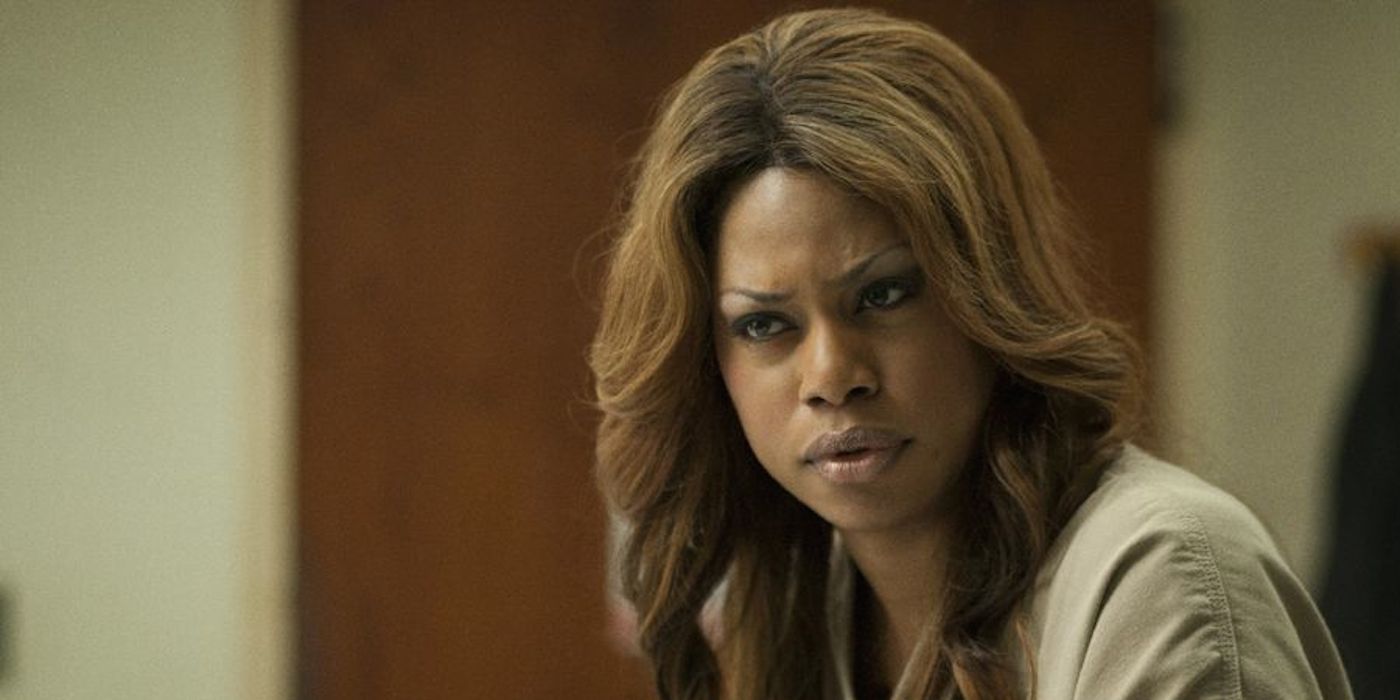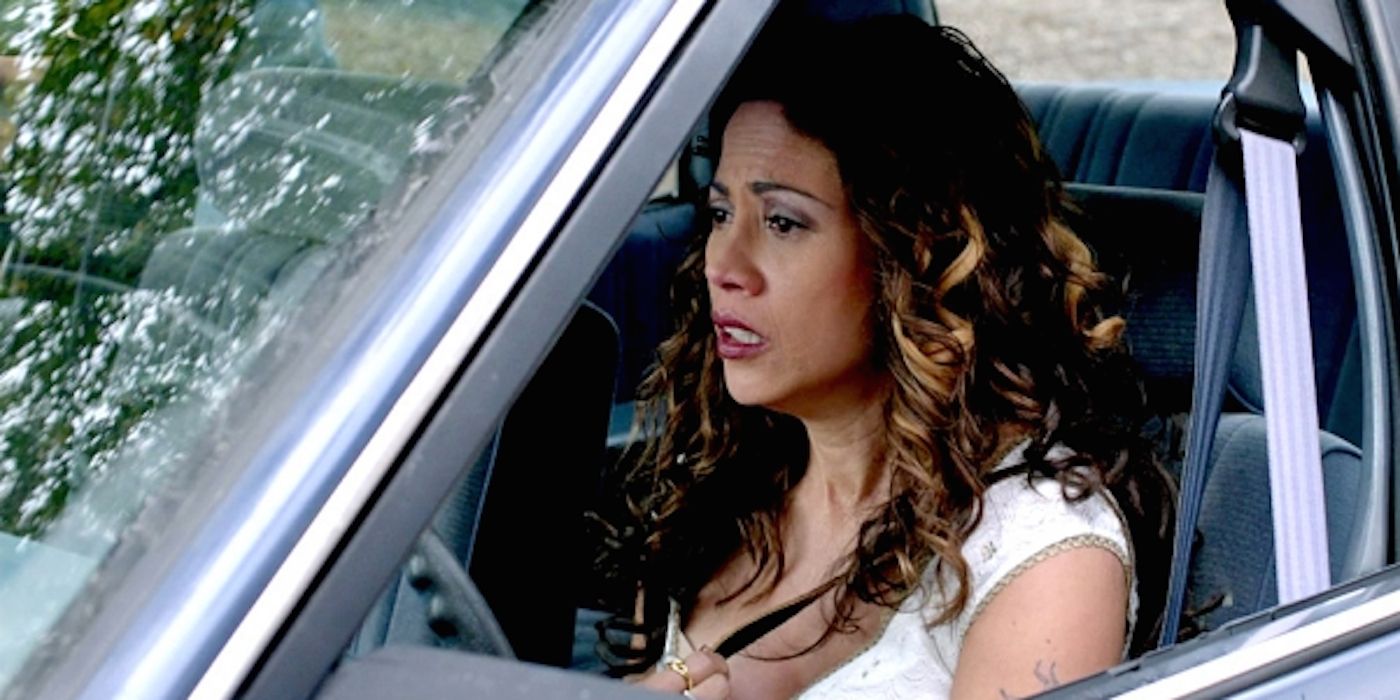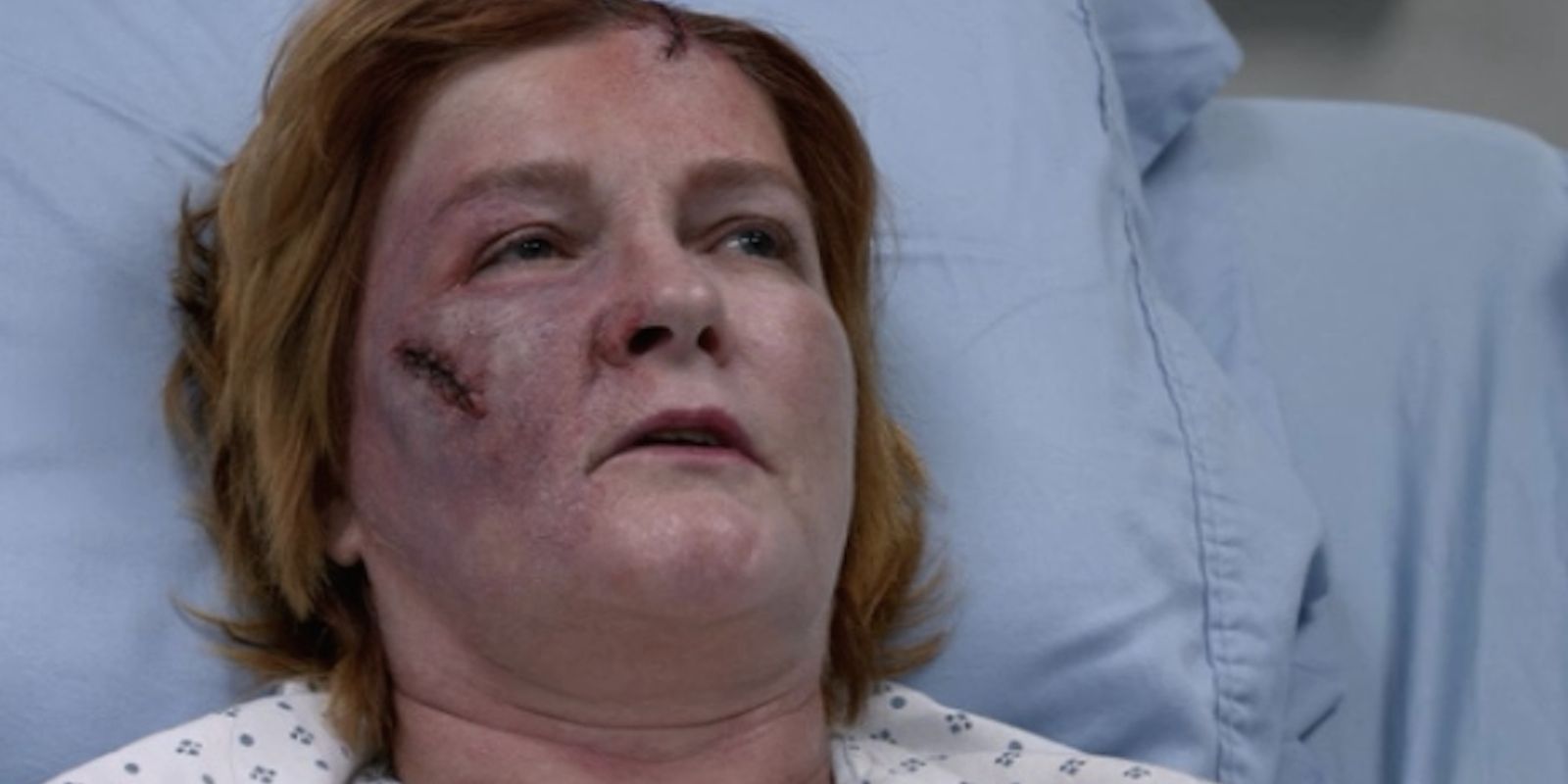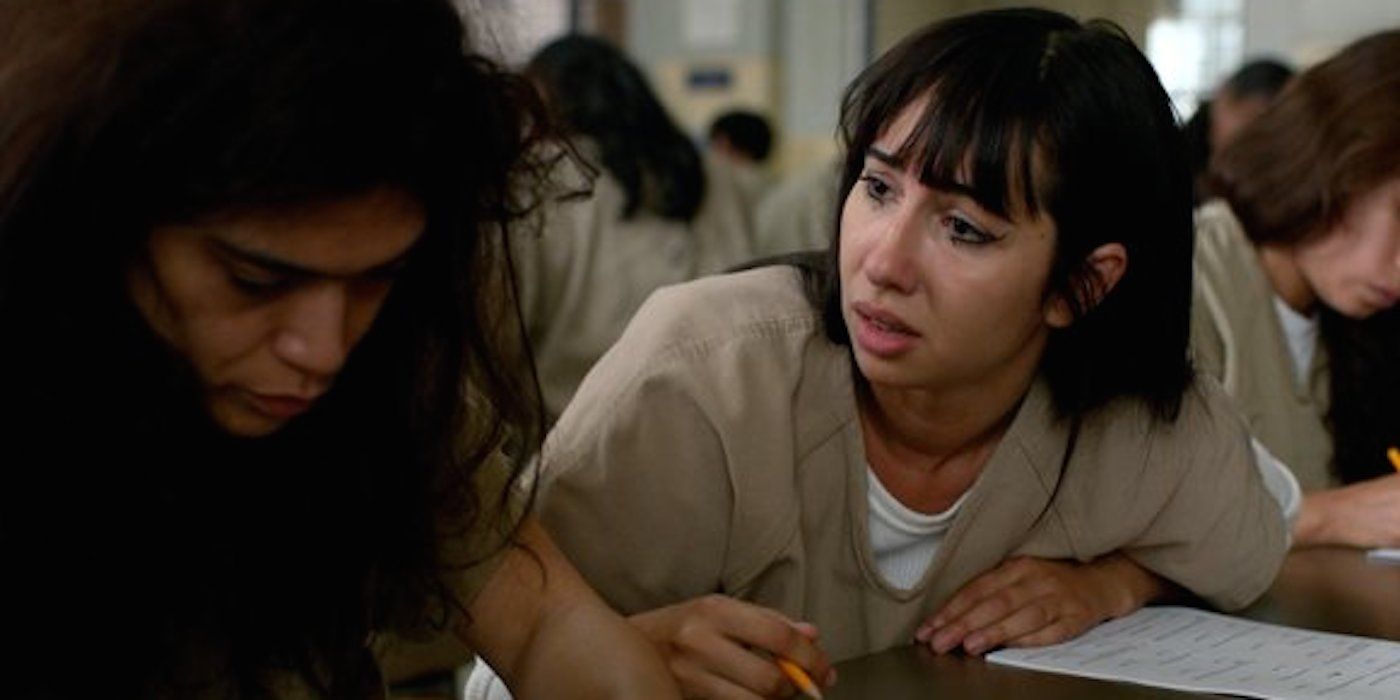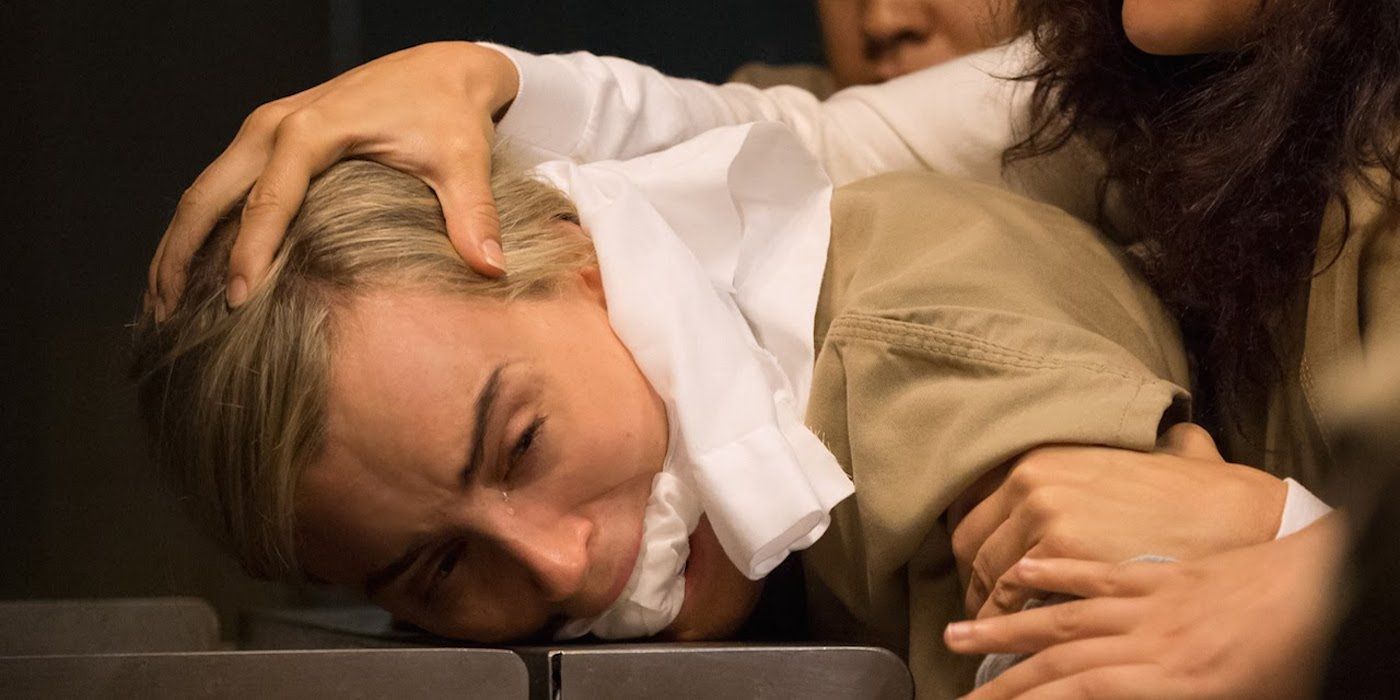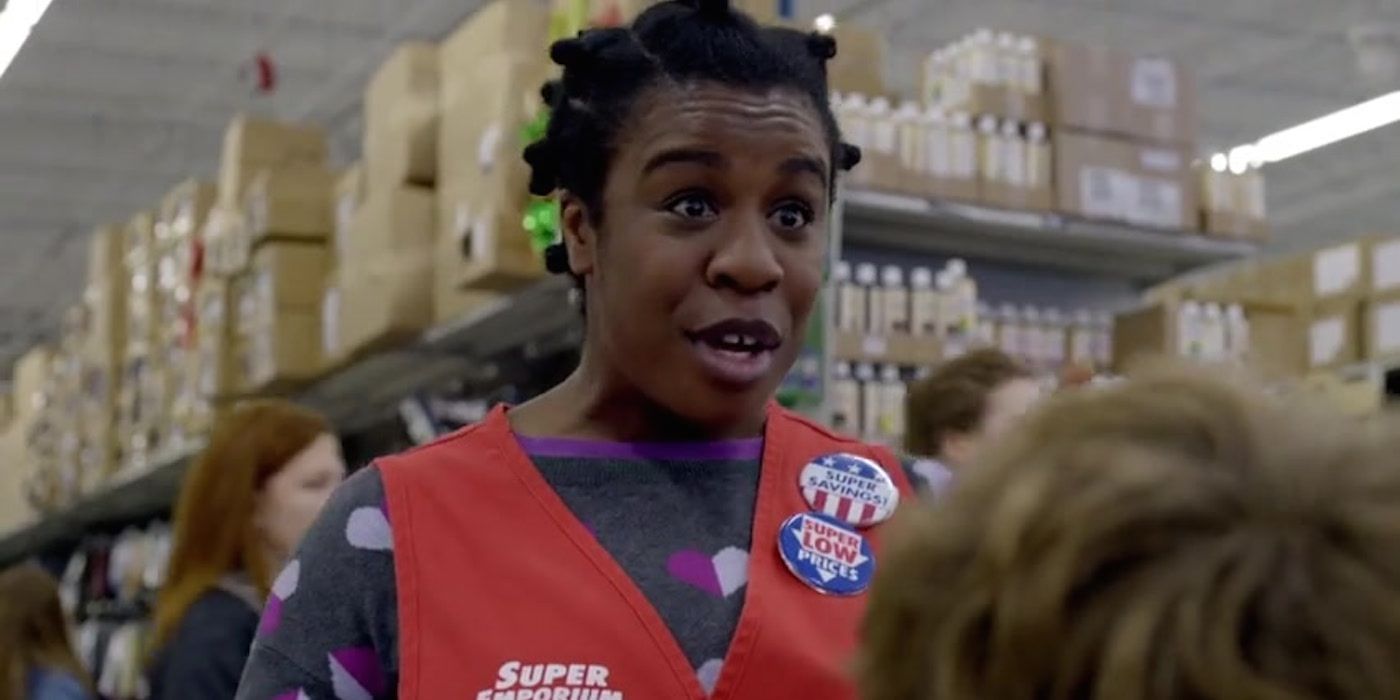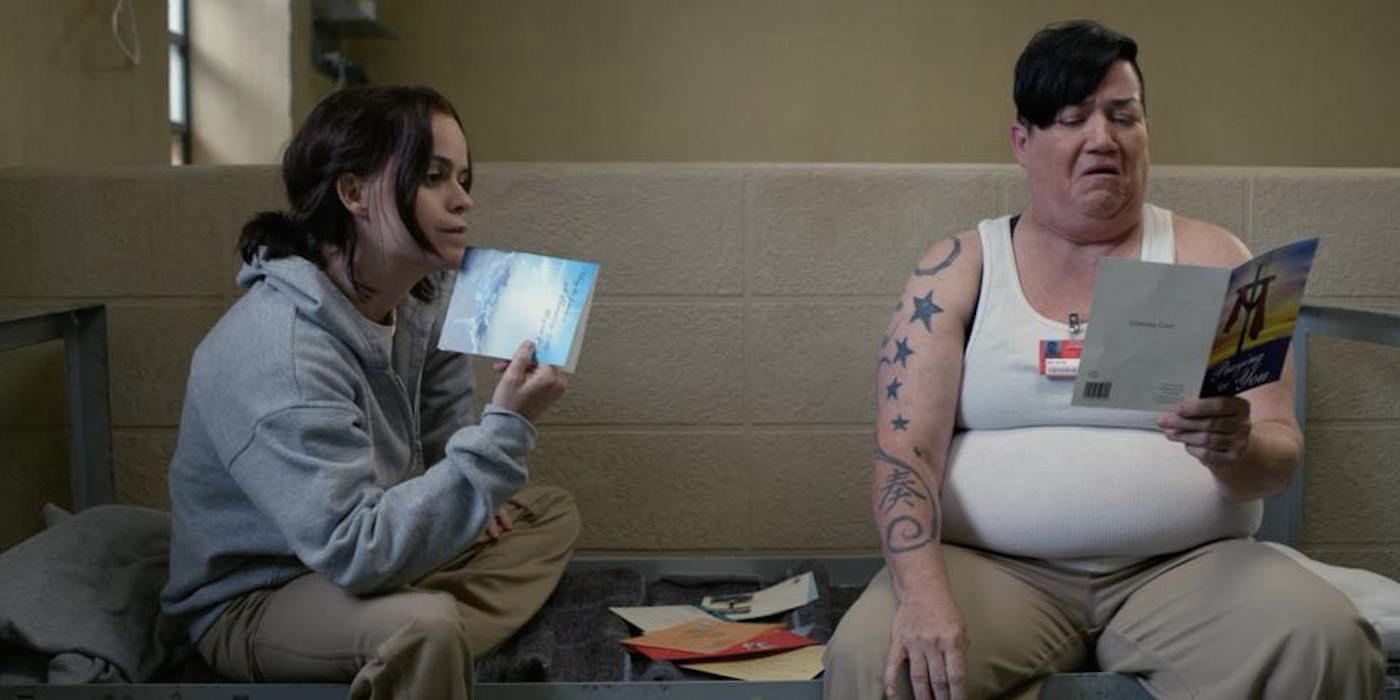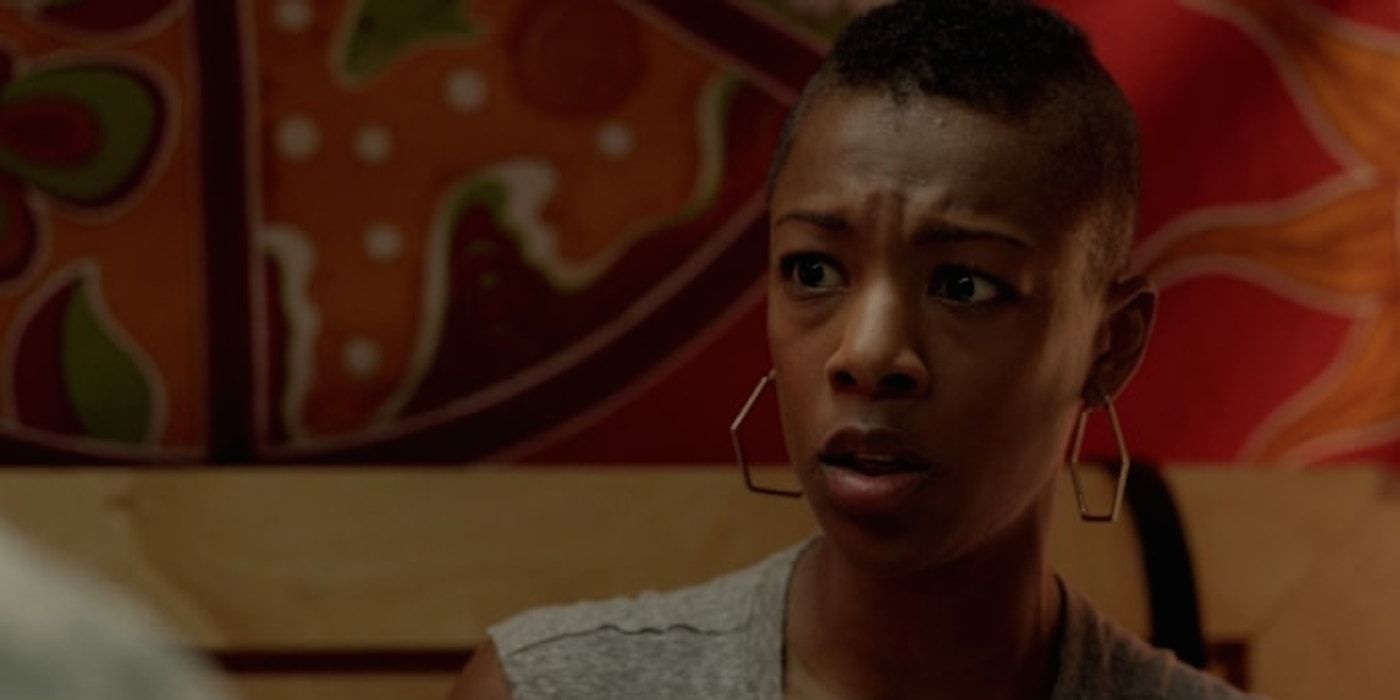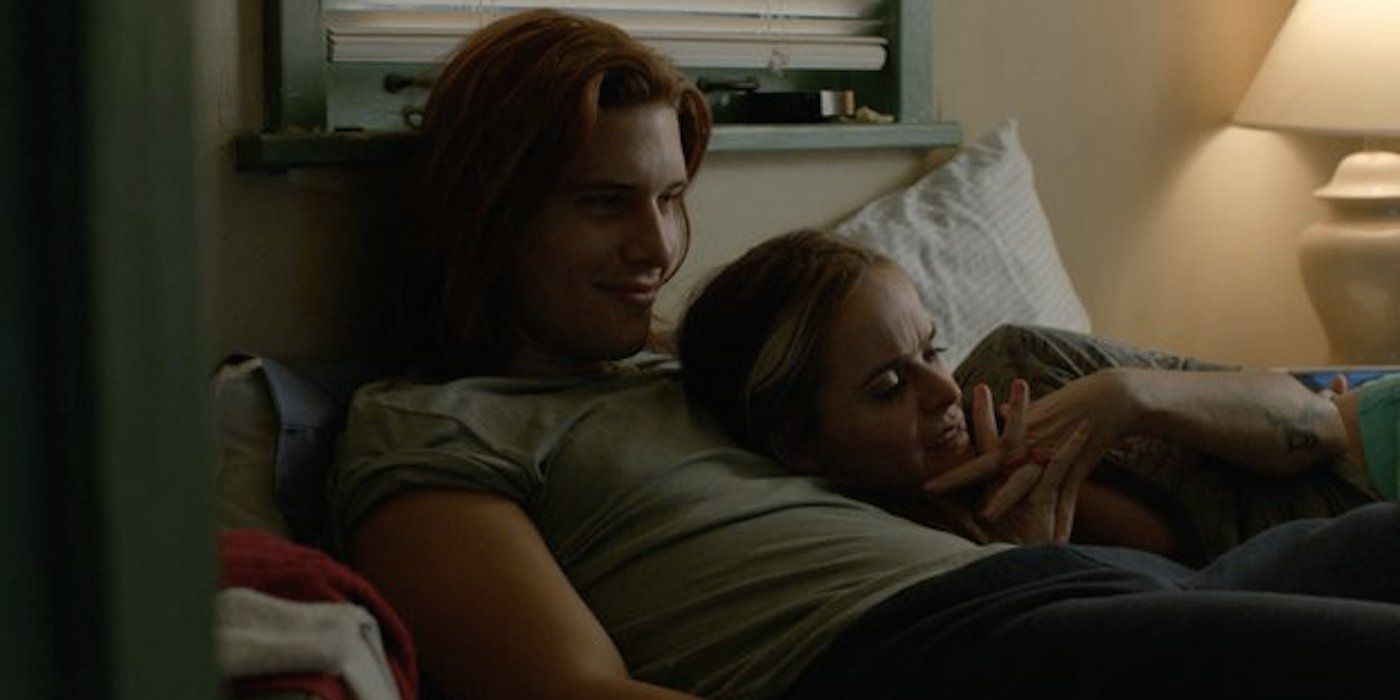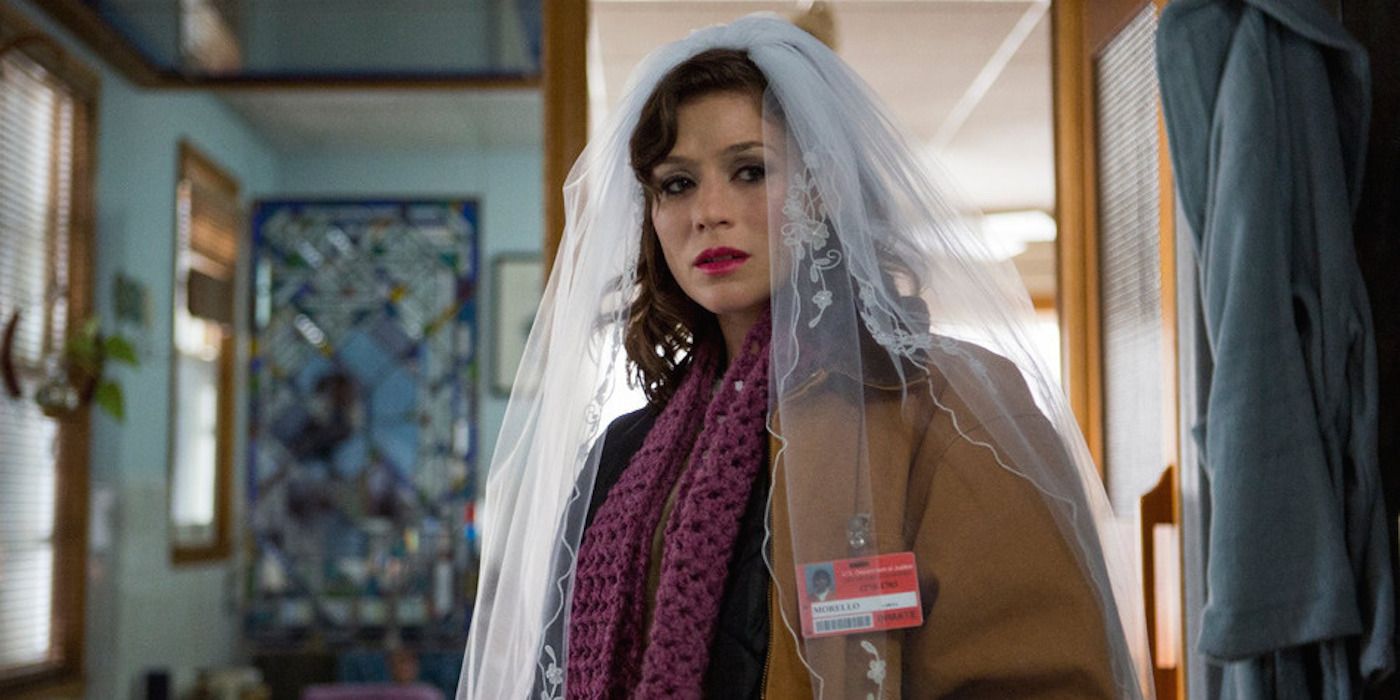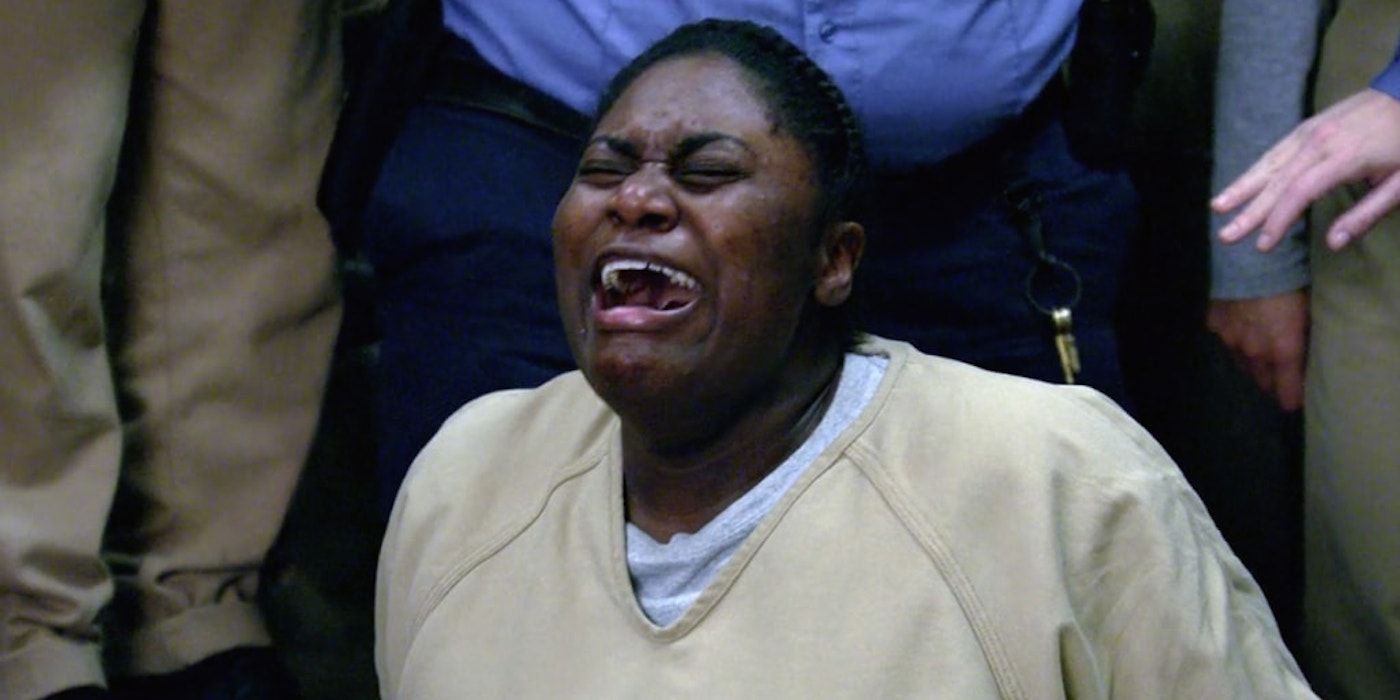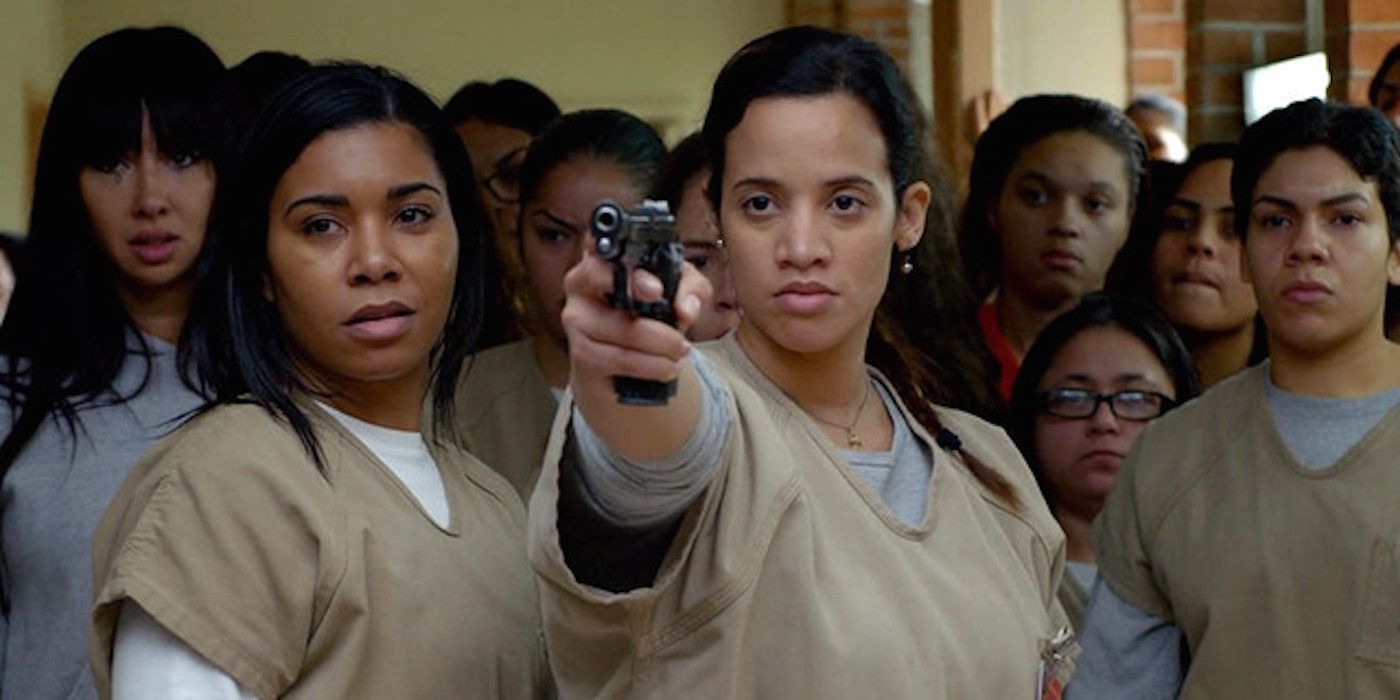For five seasons, Orange is the New Black has cranked out some of the funniest, most emotional, and most thought-provoking episodes of television. Each season is filled with so many enthralling hours of TV that it can take less than a day to blaze through every episode.
The story of Litchfield Penitentary is fascinating overall, but just as engaging in isolated chunks. A show is only as strong as its weakest link, and there have been few weak links in OitNB's run thus far.
Jenji Kohan, the creator of Weeds, brought Orange to Netflix. Based on Piper Kerman's memoir of same name, the women's prison dramedy boasts an ensemble cast bigger and more interesting than any other on TV right now. Kohan and her writers take a unique approach to each episode of the show. Every episode selects at least one character and spends roughly half the episode fleshing that character out.
Frequent flashbacks are employed to give a better understanding of how these characters ended up in their present situation. Of the many factors that make for a great OitNB episode, one of the biggest is how the focused character flashbacks are handled and compared against the current happenings at Litchfield. Most episodes accomplish this balance in spades, so picking the best of them was no easy task.
Taking into account seasons one through four, hear are 15 Best Orange Is The New Black Episodes, Ranked.
15. "Blood Donut" - Season 1, Episode 7
One of the joys of Orange is the New Black is you never know which character will be focused on next. Though we hungered for a Taystee centered episode and one about Suzanne, and had to wait until season two to get both, OitNB kept us occupied with a great episode about Janae Watson.
Watson's flashback start with her as a child, playing tag on the playground with some friends. She outperforms her male friends handily, but quickly discovers that this isn't the best way to earn their affection.
As Watson enters high school, her athletic ability opens her world up to scholarships. Yet Watson still struggles in the men department. Watson's endeavor to pin down a boyfriend leads to her romantic involvement with a criminal, which in turn leads to her getting arrested, while her boyfriend gets away scot-free.
Watson spends most of the episode at present-day Litchfield, taking out her anger on innocent bystanders, such as Yoga Jones. However, through her backstory, we realize that she was never fully appreciated for being who she was on the inside. Though she often directs this resentment toward innocents, its hard not to empathize with her.
14. "It Was the Change" - Season 2, Episode 12
Sometimes it all boils down to one moment. This is very much the case with "It Was the Change", the penultimate episode of season two. The episode as a whole is strong, offering up some insight into Vee, which only makes her appear more sinister. However, it is a scene nearing the end of the episode, between Taystee and Poussey, that manages to bring the house down.
A storm causes a prison-wide blackout, forcing all the inmates to congregate in the cafeteria for the night. As one would expect, tensions run high. Particularly for Red, who's threatened by Vee after a friend fails to assassinate her.
However, the best drama in the episode comes out of the escalating issues between Taystee and Poussey. Once great friends, Vee has driven a substantial wedge between them. This changes when the two are together in the library, as they break down in each other's arms, and all is forgiven.
In the meantime, this episode gives us more reason to root against Vee. We find out how she manipulated Taystee's friend, had him killed, and then lied to Taystee about it. The final moment of the episode shows Vee attacking Red, giving her a head injury she won't soon recover from.
13. "Lesbian Request Denied" - Season 1, Episode 3
Unlike with Taystee and Suzanne, viewers didn't have to wait long for Sophia's flashback episode. From the moment Sophia came onscreen, fans were intrigued by her sass and confidence. Fortunately, it wasn't long before we learned about Sophia's origins.
Before transitioning, Sophia went by the name Marcus. As Marcus, she worked for the fire department, salvaging credit cards from burned down houses to pay for her gender reassignment. Sophia's actions cost her greatly... in several different areas of her life. Her crimes got her arrested and sent to Litchfield. Incarcerated, Sophia's wife had to raise their son alone, juggling two jobs to do so.
On the road to being who she was always meant to be, the odds were always against Sophia. Her wife and child had to grapple Sophia's coming out.
While stealing credit cards temporarily helped her finances, her thievery ultimately got her imprisoned and widened the gap between her and her family. It would take a while before Sophia could convince her son to accept her.
12. "Don't Make Me Come Back There" - Season 3, Episode 12
Aleida wasn't easy character to like. She was never the ideal mother to Daya, inside or out of prison. However, like everyone on OitNB, she wouldn't go misunderstood for long. Viewers would soon feel for Aleida, whose frank realism often struck Daya, and us, as a lack of empathy. The truth, however, was the opposite.
After discovering her mother negotiated the future of her daughter behind her back, Daya shuns Aleida. Almost simultaneously, Daya goes into labor. While present day Aleida fights to be by Daya's side, a flashback shows a younger Aleida dropping Daya at summer camp. Aleida is sad to see Daya go, but even sadder when she picks her up again and has to drop some hard truths.
Aleida kept Daya's best interests in mind, though she wasn't great at elaborating this to Daya in person. Aleida throws out Daya's drawings from camp and dissuades her from becoming an artist, explaining that it's not a financially viable option. In the future, Aleida gets a chance to silently redeem herself. She lies and tells the woman seeking to adopt Daya's baby that the child died before it was born. This way Daya will get to keep her baby.
11. "We Have Manners. We're Polite." - Season 2, Episode 13
Orange is the New Black has a solid track record for season finales, and "We Have Manners. We're Polite." is a fine example of this. The season two finale bypassed flashbacks altogether in order to tie up the season's many overlapping plot-lines. What results is an episode that is as cohesive as it is dramatic.
Red winds up in medical after being brutally beaten by Vee in the previous episode. Knowing the attack will be investigated, Vee works on plans to secure herself. If viewers know anything about Vee, they know that she can do truly despicable things when her survival is at risk. However, nobody could have expected that she was low enough to take advantage of Suzanne's mental instability.
Vee tricks Suzanne into believing that she attacked Red, and convinces her to take the fall for the crime. Fortunately Healy, in an uncharacteristically compassionate move, proves Suzanne was elsewhere when the attack took place and prevents SIS officers from punishing her. Meanwhile, Vee meets her death in a way that satisfied many viewers, as well as one Miss Rosa.
10. "Fake It Till You Fake It Some More" - Season 3, Episode 5
Sometimes, you just need a win. Unfortunately for the inmates at Litchfield, wins were in extremely short supply. Following the announcement of a higher paying job opportunity, the inmates respond in a variety of ways. Some go gaga over the opportunity, while others question its legitimacy. Flaca is one of the former, as it turns out her entrepreneurial spirit dates back to before she donned prison garb.
Flashbacks in this episode center around Flaca's high school life. Wanting to avoid her mother's life as a seamstress, Flaca starts selling fake drugs at school. Business boomed for a time, until a kid claiming to be high on Flaca's product jumps off a school building. Despite her insistence that the drugs were fake and couldn't have made the jumper high, Flaca still gets arrested for fraud and endangerment.
By the end of the episode, Flaca was chosen, along with other inmates, for the new job opportunity. However, to her surprise, the job involved sewing for a women's underwear company. The look on Flaca's face when the irony washes over her face is both funny and upsetting.
9. "It Sounded Nicer in My Head" - Season 4, Episode 7
"It Sounded Nicer in My Head" concluded with one of the most disturbing scenes in Orange is the New Black's run. The most shocking thing about it was how it made many viewers say something that they thought they would never want to say: "Poor Piper."
As retaliation for inadvertently aligning herself with white supremacists, the Dominicans hold Piper down and brand a Swastika on her arm. This scene is astounding, but the episode as a whole, which largely focuses on the eccentric Lolly, would still be impressive even without it.
"It Sounded Nicer in My Head" dictates the snowball effect that leads to Lolly's mental instability. As a journalist, she had a keen appetite for conspiracy theories, so it doesn't help that she occasionally heard voices in her head.
Lolly could never hold a job for very long, and eventually found herself homeless, selling coffee on the street. When the police approached her and told her that it was illegal for her to be selling coffee, the voices in her head caused Lolly to overreact and provoke the police officers, who then arrested her. Lolly, like Crazy Eyes before her, became less amusing when viewers discovered her unfortunate circumstances.
8. "People Persons" - Season 4, Episode 11
At this point in the show, Suzanne "Crazy Eyes" Warren had become such a lovable character, fans were curious to know the reason for her imprisonment. Nobody wanted to see Suzanne in bad light. When the time came to learn the truth, however, no viewer could truly blame Suzanne for what she had done. It was a freak accident, but this didn't stop anybody from wanting to shield their eyes when Suzanne's crime was revealed.
Before prison, Suzanne held a job greeting people at a convenience store, and was applauded by her employers for how welcoming she acted towards customers. However, things went bad for Suzanne when her sister left her at home alone for the weekend.
Suzanne was lonely, so she decided to invited a child she barely knew over to the house, unaware of how inappropriate this invitation was. When the boy tried to escape through the window, Suzanne was shocked and tried to pull him back, but he slipped and fell onto the pavement.
From the second Suzanne invited the boy over, an inevitable train wreck was set in motion. While this was plain to see for all of us watching the show, Suzanne couldn't have been more oblivious.
7. "Finger in the Dyke" - Season 3, Episode 4
Big Boo was always reliable for getting laughs, but "Finger in the Dyke" showed that there was a lot of pain involved with her backstory. Boo faced a lot of rejection growing up, mostly from within her own family. Though she would eventually break away from all this and forge a new life for herself, she would never be totally free of her parents' judgement.
The episode follows Boo, who, in a bid to milk money from a religious group, recruits Pennsatucky's to help make her act like a reformed Christian. This, of course, involved Boo pretending that she had renounced her homosexuality.
Boo's present day story is mirrored against a story from her past. As a child, Boo refused to wear dresses to please her mother. When Boo grew up, the issue came up again when her mother was on her deathbed. This time it was her father, whom Boo considered an ally, telling her to put on a dress and act against her character.
This episode demonstrates how clever OitNB can be. Boo's ultimate decision to remain true to herself in the past lines up perfectly with her present story, which ends with her ranting against a homophobic priest. It's a great victory for Boo, and leads to an unlikely friendship between Boo and Pennsatucky.
6. "You Also Have a Pizza" - Season 2, Episode 6
Jenji Kohan and company took a risk by writing a holiday-themed episode of OitNB. A Valentine's Day episode is something you may expect from a network sitcom, not from a prestige TV drama. Fortunately, "You Also Have a Pizza" turned out to be a fantastic episode, with or without the Valentine's Day association. This is largely because we finally get more information about Poussey, a fan-favorite.
More than any other character, Poussey dispels the myth that inmates always come from broken homes or troubled upbringings. Poussey was brought up in a military family, and her years of travel made her fluent in several languages. However, moving around so much brought plenty of difficulties, especially when Poussey fell in love with a General's daughter in Germany. It didn't help that the General was a massive homophobe.
It's tough deciding which scene is more heartbreaking: the scene where Poussey and her girlfriend were found out, or the scene where Poussey attempted to pull a gun on her girlfriend's father. Fortunately, Poussey's own father stopped her and, if it's any consolation at this point, said out loud that he accepted Poussey for who she was.
5. "Trust No Bitch" - Season 3, Episode 13
The season three finale of Orange is the New Black leaves plenty of room for cliffhangers, namely Alex finding herself in close quarters with a hitman. However, for the episode's final moments, OitNB evades an intense conclusion and presents something more serene. So far, this is the most peaceful, and hopeful, Orange has ever been.
Ever incompetent, the staff at Litchfield Penitentiary make an egregious error when two workmen leave a huge gap in the prison's fence. A few inmates notice this and wander out into freedom. Soon, a flock of inmates, knowing they'll eventually be caught, rush to temporary freedom. They arrive at a nearby lake and, following Suzanne's example, most leap into the water and celebrated being outside of Litchfield's confines, however briefly.
So many touching moments transpire in this one scene. It's hard to decide which warms the heart most. A romantic spark suddenly emerged between Poussey and Soso and multiple characters make amends with each other. However, perhaps the best moment is Black Cindy finally getting to have a mikvah and completing her conversion to Judaism.
4. "A Tittin' and a Hairin'" - Season 3, Episode 10
Pennsatucky's first flashback episode back in season one was mostly played for laughs. The irony of her getting praise from a religious group-- for shooting up the abortion clinic she herself was getting an abortion at-- is still not lost on viewers. However, "A Tittin' and a Hairin'" tells of Pennsatucky's sorrowful childhood, and how it foreshadowed an equally sad adulthood.
As a young girl, Pennsatucky received what can easily be described as history's worst "birds and the bees" talk. Her mother conveyed to her that, when she was older, Pennsatucky should let men do whatever they wanted with her. When she entered her teenage years, she formed a habit of exchanging sex for material things. Its not until she fell in love with Nathan that she discovered how rewarding sex can be for both parties involved.
Nathan represented the first person in Pennsatucky's life who put her needs before their own. However, Nathan eventually moved away, and the best thing Pennsatucky every had vanished just as quickly as it appeared.
In a single episode, OitNB makes us completely forget the Bible-wielding fanatic Pennsatucky was, and causes us to genuinely empathize with her.
3. "A Whole Other Hole" - Season 2, Episode 4
"A Whole Other Hole" stands out as a great in-season episode, one that is neither a premiere nor a finale. It's an example of Orange's ability to deliver excellent one-off stories in the context of its overall narrative. It helps that the story is about Morello, and the true magnitude of her confused state.
It was always clear that Morello had a warped perception of her relationship with Christopher, whom we had never seen in the show up until this episode. Looking at the state of Piper's engagement, it's hard to imagine any marriage plans surviving Litchfield.
However, not only was Morello not engaged to Christopher, she was never even in a relationship with him. After going on one date, Morello stalked him constantly, which eventually led to her placing a bomb underneath his girlfriend's car.
Jenji Kohan and her writing team pull off a crafty bait-and-switch in this episode, at first making us believe Morello's true crime was starting a mail scam to get free shoes. The present-day story is also packed with surprises, showing Morello risking to elongate her sentence by driving the prison van to Christopher's house and trying on his fiancé's wedding veil.
2. "The Animals" - Season 4, Episode 12
OitNB had a fair share of notable directors helm various episodes (Jodie Foster directed "Lesbian Request Denied" and "Thirsty Bird"), but it's still amazing to see Matthew Weiner's name on that list. The Mad Men creator directed the penultimate episode of season four, which culminates in the single most soul-crushing scene of the entire series.
Taking its title from a line in Regina Spektor's theme song, "The Animals" essentially describes what the inmates at Litchfield are being treated like at this point. The new guards have become increasingly domineering, crossing ethical lines left and right, and horrifically abusing the prisoners. The exception seems to be Baxter Bayley, the character who is focused on in this episode. However, by the end, Bayley finds himself complicit in the death of a beloved inmate.
Poussey Washington is gone, but she will never be forgotten. Certainly not by Taystee, her closest friend in the world. Taystee's anguished cries at the end of this episode echoed long after viewers had stopped binging, and they continued into season five.
1. "Toast Can Never Be Bread Again" - Season 4, Episode 13
If such a thing seemed possible, tensions between prisoners and guards continued to escalate in the wake of Poussey's death. Murmurs of a riot became even louder after Caputo defended Bayley when he's held responsible for what happened to Poussey. Caputo's betrayal, and silence over Poussey's death, cuts deep for the inmates at Litchfield, particularly Taystee.
Though the heat was already on at present-day Litchfield, the season finale's flashbacks weaved a mellower story. Who would have suspected that the flashbacks would revolve around Poussey?
Rather than finally giving us the answer to how Poussey ended up in prison, Jenji Kohan and company threw us a refreshing curveball. "Toast Can Never Be Bread Again" offers a night in the pre-Litchfield life of Poussey Washington, a swan song for a life that could have been.
The sadness of Poussey's passing, mixed with the rage for Litchfield's unchecked corruption, creates a hurricane of emotions throughout the prison's hallways. Swept up in the mix is a guard who is dumb enough to bring a gun into a prison. The weapon finds its way to Daya's hand, and before Chekov's Gun can go off, the season ends-- offering a cliffhanger for the ages.
---
Season five of Orange is the New Black is now available for stream on Netflix.
What are your favorite episodes of Orange is the New Black? Let us know in the comments!

